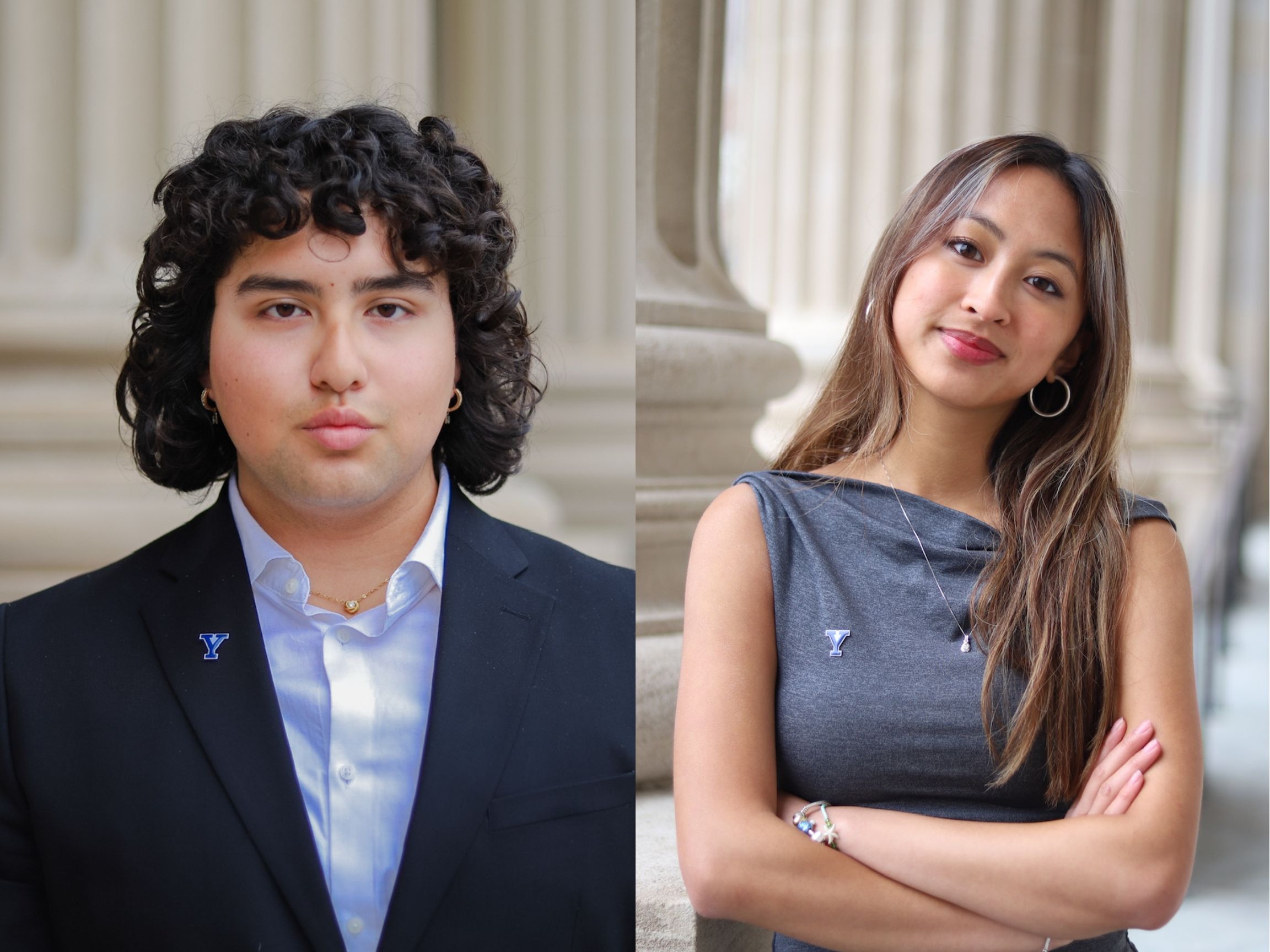YCC CANDIDATE PROFILE: Diego Paz ’27 and Emily Nguyen ’27
United by their purpose, the ticket is resolved to amplify student voices, hold administrators accountable and build a Better Yale — one practical policy at a time.

Courtesy of Diego Paz and Emily Nguyen
Prior to running on a shared ticket, presidential candidate Diego Paz ’27 and vice presidential candidate Emily Nguyen ’27 weren’t especially close. But this year, they have become one another’s complements — bonded by a commitment to holding the administration accountable for overlooking student voices.
Their shared platform has three prongs: inclusivity, amplify and accountability. They hope to address them using their experience in campus politics and affinity organizations.
Paz’s resume is lengthy. Last year, he served as the Vice President of the First Year College Council and currently serves as a senator for Pauli Murray College. Outside of the YCC, he is a campus tour guide, a college aide and a peer liaison at the LGBTQ Center. This summer, he will be the co-head counselor of the Cultural Connections first-year orientation program.
He said that the decision to run for president felt like a next step, or progression toward promoting community on campus.
“I’ve had so many different avenues of witnessing all of the different parts that go into what the YCC is, but also the larger mission of what it means to serve in student government,” Paz said. “And throughout this year, especially with a lot of the changes that have been happening, it became very clear to me that I wanted to be able to be an advocate for all of the different opinions, thoughts, and ideologies on campus.”
Nguyen is no different, balancing three demanding roles within the Council as Academic Policy Deputy Director, a senator for Berkeley College and a Sophomore Class Council Representative.
She cited specific changes such as the closing of Schwarzman Commons on Fridays and the removal of “crucial” stipend programs such as the summer storage reimbursement for low-income students. She hopes to mitigate further rollout of programs mirroring these using their platform “Better Yale.”
Together, they hope to pioneer strategies of action against administration and garner expansive understandings of the various corners of campus life.
“We didn’t really know much about each other before,” Paz said. “We had worked together in the first-year college council and in the Senate. When it came to the process of deciding who I was going to run with, though, it became very clear to me that Emily’s work effort and ability to advocate for what students demand really attracted me to her as my vice presidential ticket.”
Paz said that while he and Nguyen inhabit different spaces on campus, they have been able to come together over a common goal of creating a YCC for all. And their wide range of experiences with policy issues in YCC makes them “well equipped to have institutional knowledge,” Nguyen believes.
The two other prongs, amplify and accountability, go hand in hand with one another, according to Paz and Nguyen. Together, they hope to uplift student voices and compel administrators to listen. Paz praised the efforts of student protestors, in particular those near Beinecke Plaza on the day of McInnis’ inauguration.
When asked what course of action the candidates would take if offered a simple administrative ‘No,’ Paz and Nguyen reinforced that they firmly believe in the efforts of renegotiation and circumnavigation.
“Negotiation, compromise and bargaining are all facets of what make the Yale College Council so powerful,” Paz said. “Better Yale is really a campaign that is focused on ensuring that we are not stopping at ‘No’ and that we’re continuing to see what other avenues there are in order to make student voices heard.”
Paz also iterated the importance of “realistic goals,” or goals grounded in institutional knowledge and an understanding of what tends to get passed in the YCC and later adopted on a campus-wide scale.
To them, both first-generation, low-income students, a realistic goal that their opponents’ campaigns neglect to touch on is the importance of financial policy.
“We want to ensure that students, especially low-income students and even middle-class students who do not get significant financial aid packages, feel like they can really engage and succeed,” Nguyen said. “We propose ideas like free printing, free lodging, stipends for course material reimbursement, and stipends for air travel. That’s what sets us apart.”
Their campaign team is majority composed of students not involved with the YCC and offer “outsider perspectives.” If elected, they also propose to make the seemingly “distant” student government become accessible through semiweekly tabling on Cross Campus and one-on-one conversations.
Voting begins on April 10 at 9 a.m. on YaleConnect and closes on April 11 at 9 p.m.







